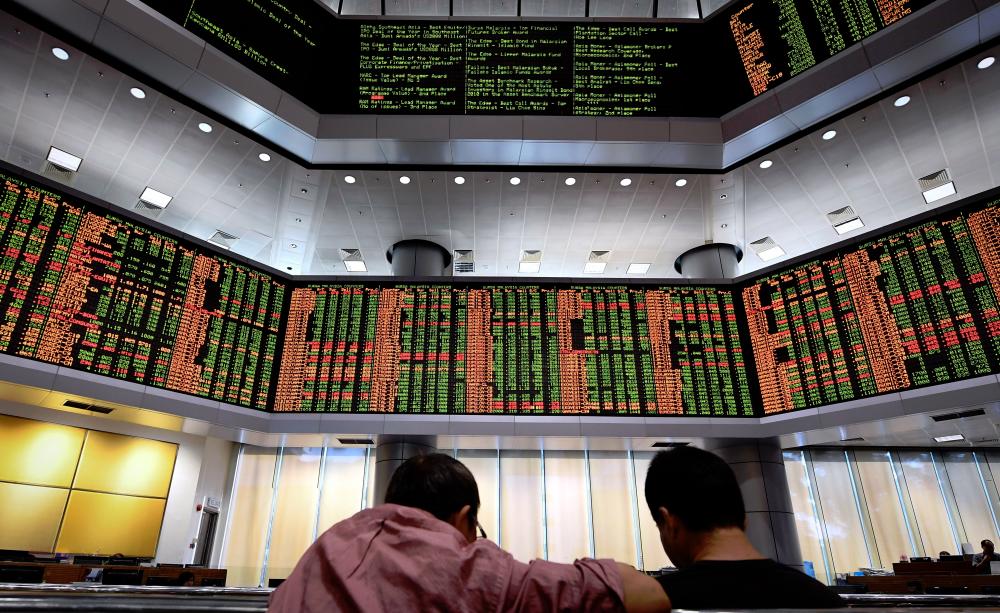KUALA LUMPUR: In times of low yields or economic uncertainty, it might be tempting for investors to take a look at their portfolios and make adjustments to them in order to try and minimise losses or seek better returns.
However, according to financial planners that SunBiz spoke to, it would be better to stick to long-term investment plans, rather than reacting to short-term volatility.
Ascendur Bistari Sdn Bhd financial planner Jon Ti Yi Hong said it was important not to be driven by fear and lose sight of the forest for the trees.
“If they do not already have one, I highly suggest all investors have an investment policy statement to set the goals of the investment. Secondly, don’t panic, just stick to your investment plan,” he said.
He further explained that having this type of statement would help with making more disciplined decisions, and advised that should investors wish to make tactical decisions, only about 20-30% of their funds dedicated to asset allocation should go towards that.
“While we shouldn’t react to everything, we still need to keep up with what is happening. Sometimes when you try to keep up tactically, there are costs involved which can add up, so you shouldn’t try to do too much,” he said.
Finwealth Management Sdn Bhd director of financial planning Felix Neoh echoed the sentiment, saying that investors should practise strategic asset allocation.
“Of course, this depends on your risk profile, but investments should be spread across high, moderate and low risk in the appropriate proportions accordingly.
“Also, don’t blindly invest and hope for the best. I always advise people to do active performance management, which involves rebalancing and restructuring their portfolios as required and then taking profit and reinvesting that,” he said.
That said, he added that investors should also ensure that they have adequate cash reserves (at least six months of expenses) before any investment decisions are made.
In terms of what investors can look for, Ti said given the current low-yield environment, resiliency and value investing have become prominent equity investment themes.
“If investors have certain investment ideas in mind, then this is a good time to buy when the rest of the market is selling. Even though everything has been affected, it’s a good opportunity to pick up stocks that have been shown to be quite resilient against external factors, not just in Malaysia but globally,” he said.
Neoh said for those investors who are looking to shift some of their portfolio to higher income-generating assets and prepared to weather some volatility, they can consider bonds, real estate investment trusts, fixed-income vehicles, high yield stocks and some structured products.
“For those who are able to top up, some investments that offer low risk with fairly decent returns such as Amanah Saham Bumiputra or EPF savings, these might prove to be suitable investments given the current low-interest rate regime,” he said.
Neoh stressed that diversification across asset classes, geographies and currencies is a must.
Last Tuesday, Bank Negara Malaysia cut the Overnight Policy Rate again by 25 basis points to a decade low of 2.5% as the Covid-19 outbreak has taken a toll on the economy. This was followed by banks trimming their base rates, base lending rates and deposit rates.














